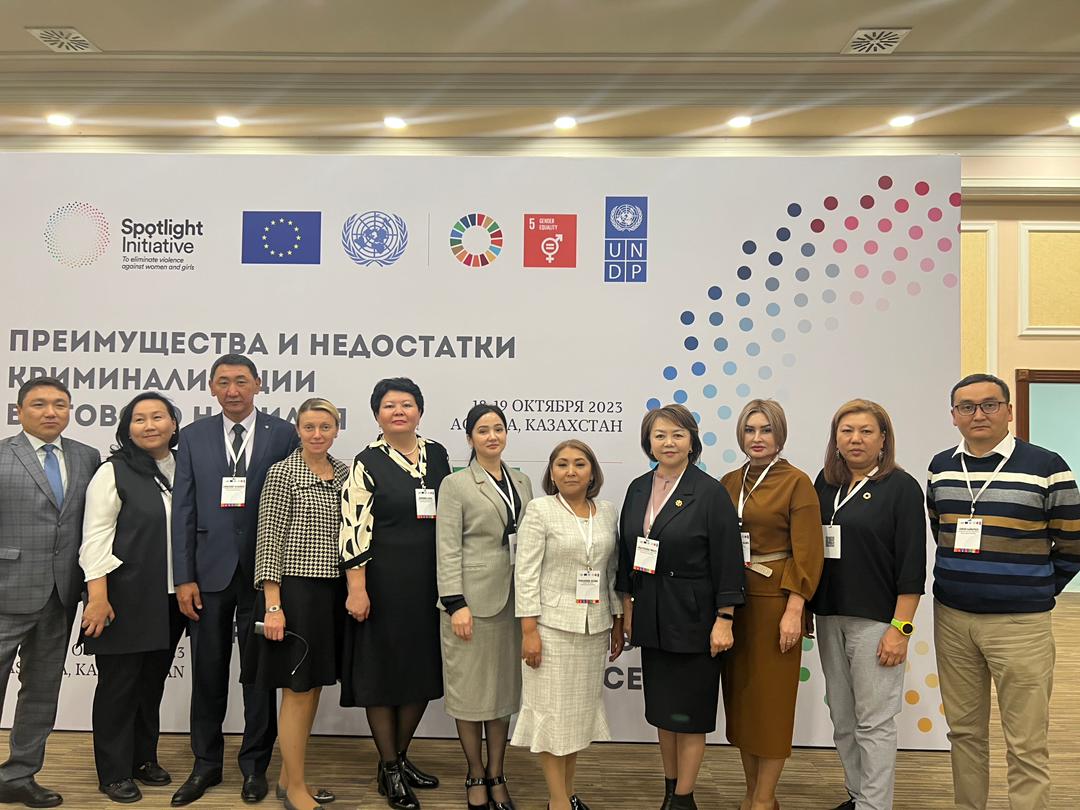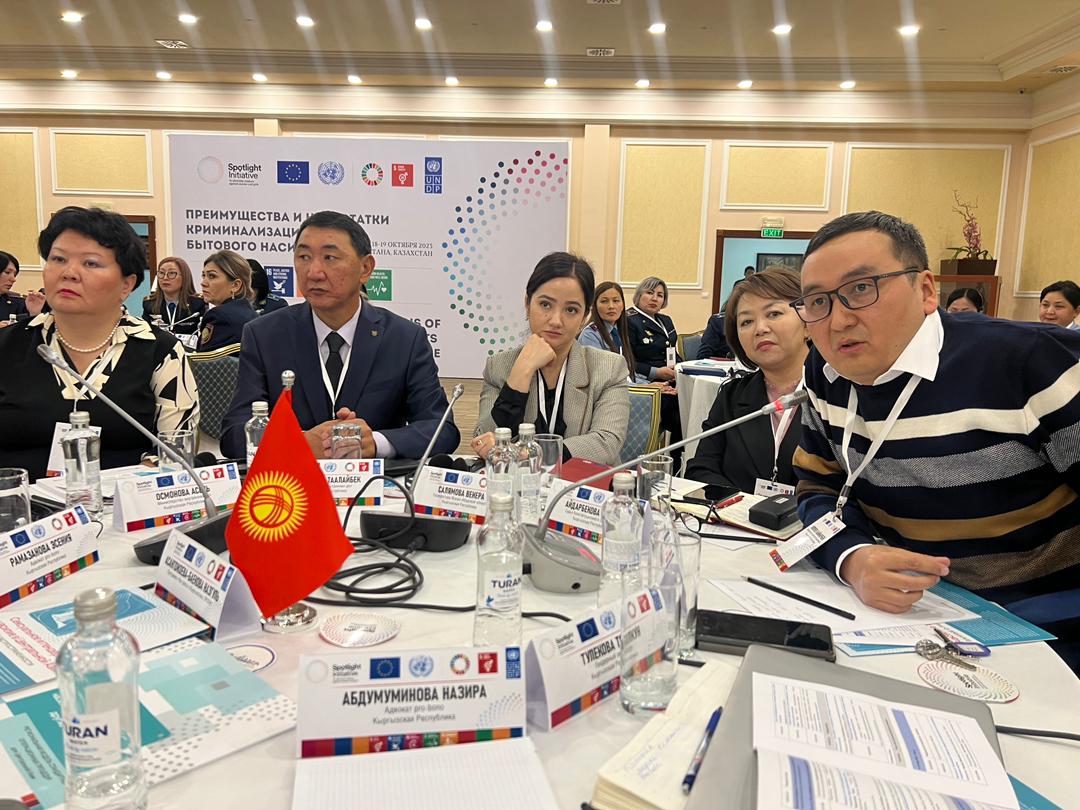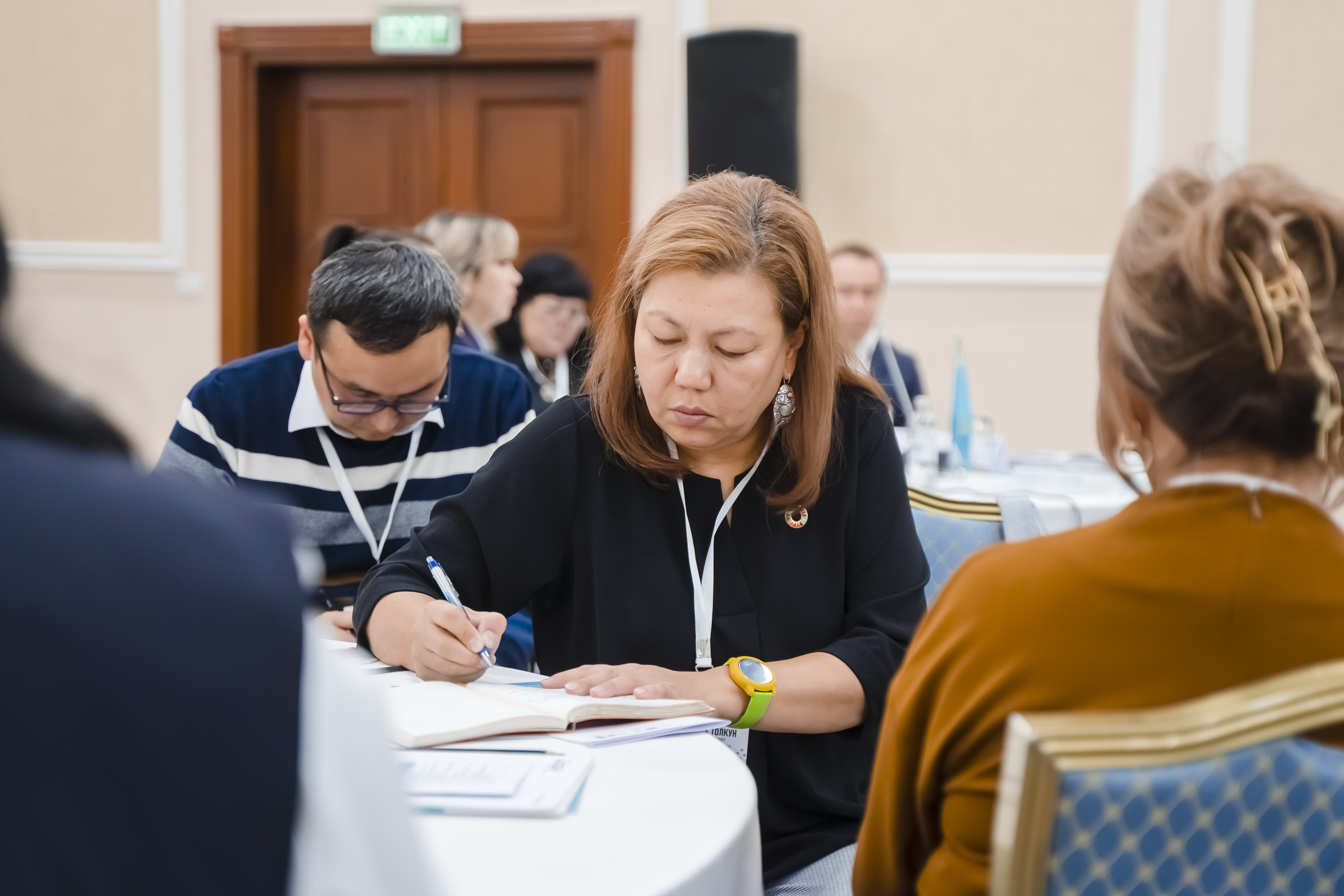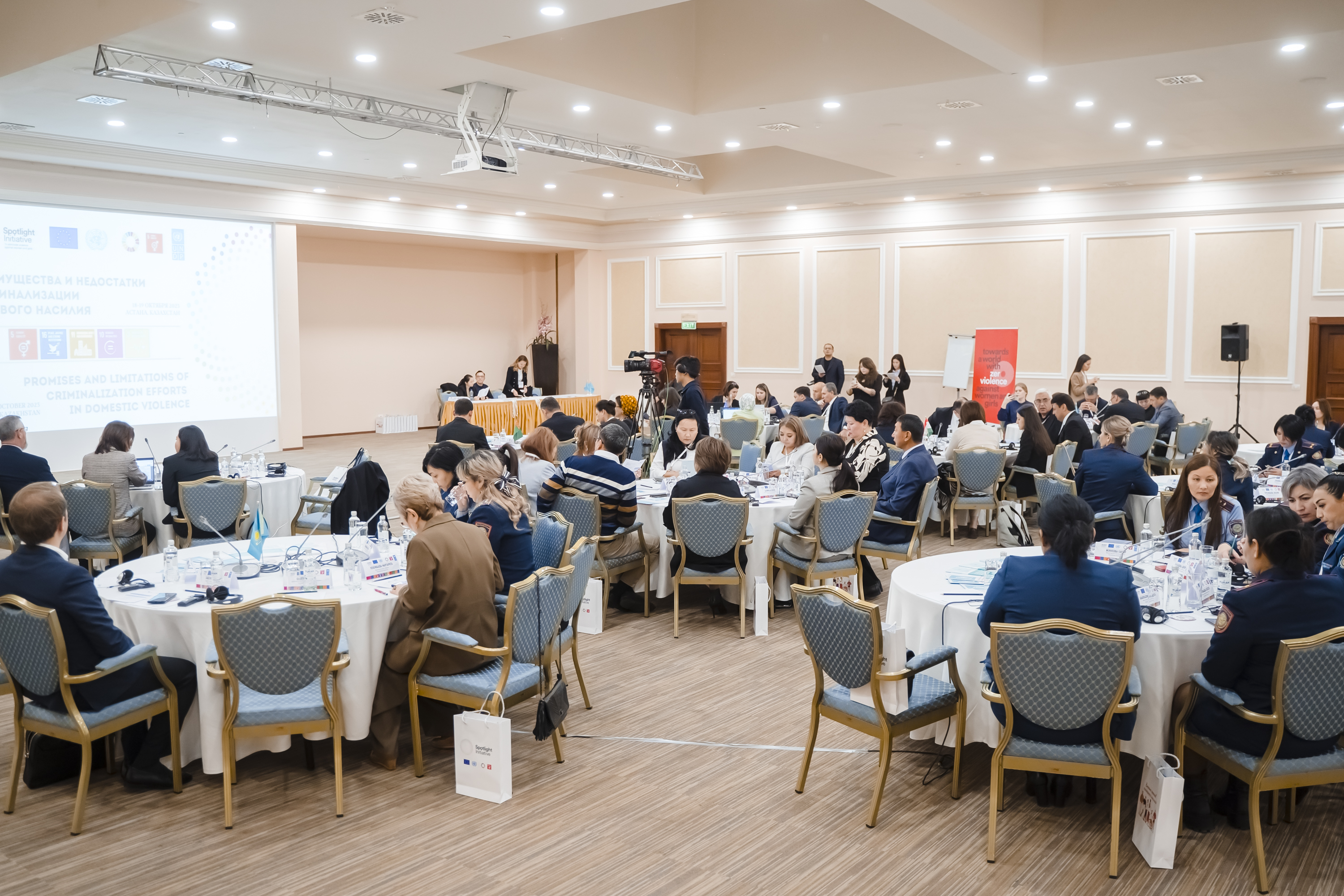Criminalization of domestic violence on agenda of Central Asian countries
October 19, 2023

19 October 2023, Astana – With the support of the Spotlight Regional Programme for Central Asia, an expert dialogue was organized to discuss the scope, consequences and outcomes of the criminalization of domestic and partner violence. Legal experts, law enforcement representatives, lawyers and gender specialists from Central Asian countries participated in the dialogue. The dialogue became a platform for developing practical ideas and proposals to close gaps, overcome obstacles and increase the impact of criminalization measures against domestic violence.
"It is important that criminalization policies simultaneously include a wide range of measures related to alternative approaches, to work on early detection and to prevention of gender-based violence. Although the police play a major role, we need to develop coordination and interaction both within the protection sector itself (police, prosecutors, courts) and between all actors (police, crisis centres, health and social protection organizations, legal services),"said Sukhrob Khojimatov, UNDP Deputy Representative in Kazakhstan.
The criminalization of domestic violence is one of the most discussed issues in Central Asian countries today. Taking into account the norms of the UN Convention on the Elimination of Discrimination against Women, of the Council of Europe Convention on Preventing and Combating Violence Against Women and Domestic Violence, or Istanbul Convention, and of other international human rights treaties, experts, activists and practitioners are calling for more stringent punishment for acts of domestic violence.
Currently, the fight against domestic violence in Central Asia is largely limited to administrative measures. However, their effectiveness is often criticized as they have failed to reduce the prevalence of violence against women. Some countries in the region are already taking steps to amend their criminal and civil codes to increase penalties for domestic crimes.

"Criminalization is an important step in the fight against gender-based violence, but it is not the most effective way to prevent it. By prioritizing the inevitability of punishment rather than its severity, we can create a more just and safe society for women and girls around the world,"said Juan Belikow, Spotlight Initiative, regional programme expert.
The experts who participated in the dialogue stressed the need to review the grounds and procedures for termination of criminal proceedings in domestic violence cases. The fact is that termination in the context of reconciliation for moderately serious offences affects the dynamics for serious and particularly egregious categories of offences where termination on the basis of reconciliation is not permissible. Thus, dismissal based on reconciliation of the parties and mitigation of liability for minor assault and battery leads to the perception of such offences as being treated with relative impunity.
It should also be noted that a high level of public tolerance for domestic violence exists in the Central Asian countries. According to the Gender Social Norms Index, the situation in Central Asian countries is as follows:
Kazakhstan has the highest proportion of women of all Central Asian countries (8.74 percent) who do not face any gender bias, as per the four dimensions of the Gender Social Norms Index (GSNI), namely politics, education, economics and physical integrity. In comparison, in Kyrgyzstan only 2.6 percent of women do not face any such bias, in Tajikistan – 2.32 percent. In the Central Asian region, the percentage of the population with a gender bias is highest in Tajikistan and lowest in Kazakhstan. At the same time, this figure is still above 90 percent in both cases. Across the region, men are generally more likely than women to have a gender bias in all four above-mentioned dimensions of the GSNI.
As part of the expert dialogue, a special training for inspectors on the protection of women from violence in Kazakhstan was organized on a gender-sensitive approach to working with victims of violence. The training was conducted by experts from the regional programme, entitled "Ray of Light", the Korgau Astana Foundation and the Aktobe Law Institute.
***
About the United Nations Development Programme
UNDP is the leading United Nations organization fighting to end the injustice of poverty, inequality and climate change. Working with our broad network of experts and partners in 170 countries and territories, we help nations to build integrated, lasting solutions for people and planet.
Find out more on undp.org or on Twitter: @UNDP
***
About the Gender Social Norms Index:
The GSNI reflects how deeply entrenched ideas about gender and the position of women in society are. It shows how people agree or disagree with certain statements that reflect perceptions of gender and gender roles. The index covers various aspects of life, including politics, economics, family, and education.
***
About the Spotlight Initiative:
The Spotlight Initiative is a global initiative of the United Nations, supported by the European Union, to end all forms of violence against women and girls. This initiative represents a unique effort to advance gender equality and women's empowerment, which is key to achieving the Sustainable Development Goals.
The Spotlight Initiative's regional programme for Central Asia and Afghanistan promotes legal reforms, strengthening institutions and women's movements, and promoting norms based on gender equality. We are also working to improve data collection on violence against women and girls. An important element of our work is the creation of a regional community of specialists who will be able to work together to overcome harmful practices and to support gender transformation in the region.



 Locations
Locations

